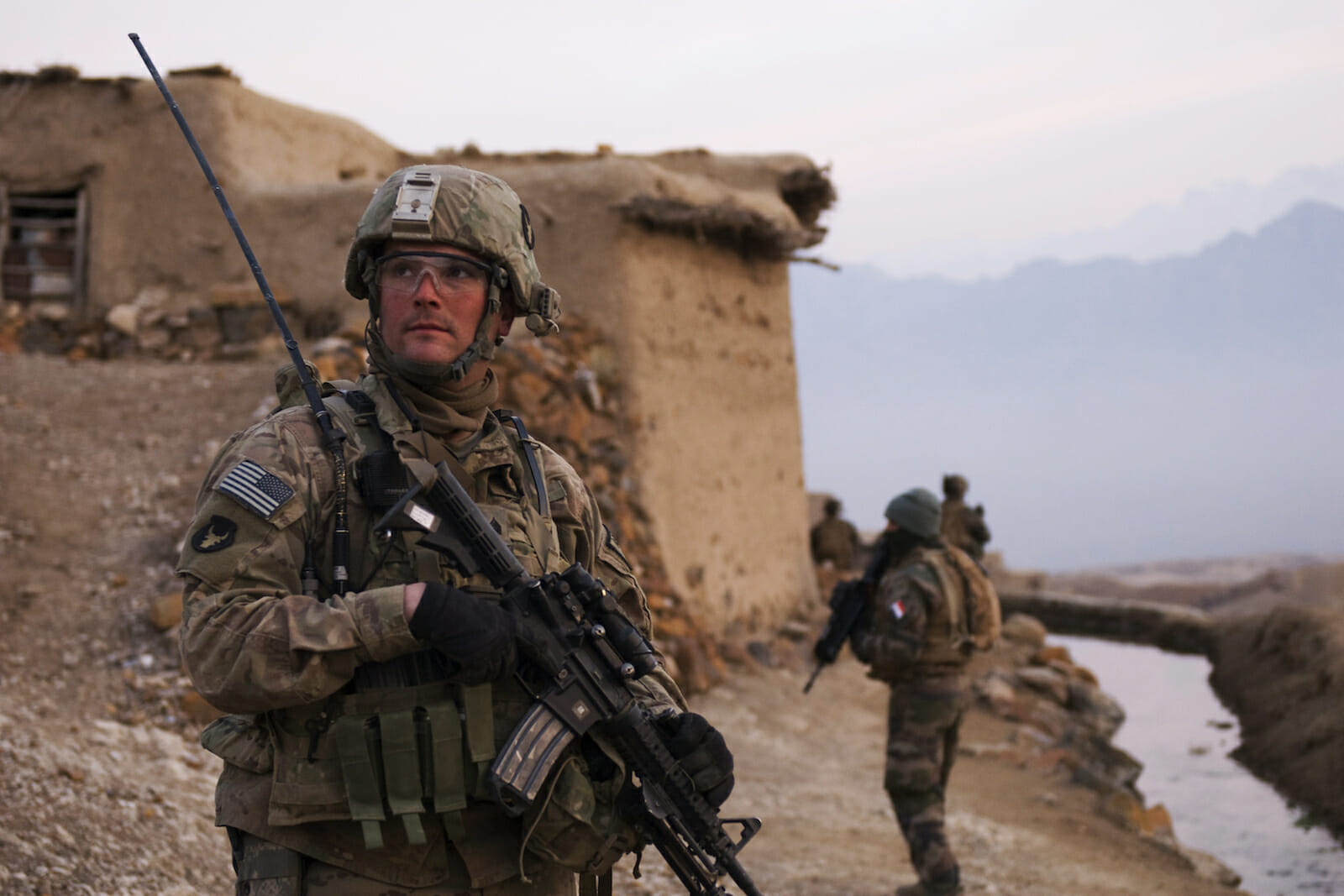
Lessons Hidden in Afghanistan
What should be striking about the news out of Afghanistan lately is the extent to which the headlines have been about tragic, non-military events. Korans were defaced and a U.S. servicemember is suspected of murdering seventeen Afghan civilians. These acts have both had a profound, negative impact on U.S.-Afghan relations and, by extension, have put our troops and our mission in Afghanistan in greater jeopardy. But what is today’s mission? To what extent is there still a military mission in Afghanistan? How do we distinguish a military mission from a political mission more than ten years into the post-9/11 global world? As a service to our men and women who volunteer to defend us we ought to answer these questions.
Militaries, throughout history and around the world, are designed to fight wars. That is what they do. It is their design. A military such as ours, under civilian control, follows the orders of its civilian leadership. It is appropriate to reexamine political and military missions periodically, particularly as the percentage of Americans who have served in the military decreases, and fewer citizens are familiar with our military and its capabilities.
A “stronger” military is simply one that wages war more effectively than its weaker opponent. Wars entail military engagements, military casualties, and the capturing of territory. These are some of the indicia of military objectives.
What should be striking about the tragic headlines out of Afghanistan lately is they deal with none of those indices of military objectives. News headlines out of Afghanistan haven’t been about those indices in years. The fact that the recent headlines have been dominating the news cycle is further evidence that the mission in Afghanistan is no longer military in nature but rather political.
Discerning when a military mission exists, as opposed to a political mission, in the post-cold war era, is extremely difficult but also extremely important. It is complicated as war itself is motivated by politics. Colin Powell has famously said “War should be the politics of last resort.” The fact that it is difficult today to determine when a military mission exists as opposed to a political one, shouldn’t cause the U.S. to isolate when instead we should act. What is required is diligent, thoughtful analysis about the resultant political mission when considering embarkation on a military one.
Time after time, history has shown that militaries have a difficult, if not impossible time executing political missions. When foreign militaries attempt to achieve a political mission they necessarily transition from a force projecting military power into an occupying force. We have to look no further than our own history in the United States. Reconstruction in the south following the Civil War demonstrates the difficulty inherent when militaries take on a political mission. Given both the broad, justified, public support today for our men and women in the military and the can-do attitude of those men and women as they approach their duties, it can be tempting, even amongst senior military leaders, to assign roles to our military outside its core competencies.
Militaries are exceptionally good both at destroying things (people and places) and threatening to destroy things. In Bosnia, the threat of annihilation kept local militias in check and stopped the genocide there. Bosnia was and still is a place where there exists a clear military objective – keep the peace by threatening to destroy anyone who would disturb it. In Rwanda, the military objective of keeping the peace was within the capability of the U.S. military. President Clinton has said his failure to deploy troops to stop the genocide there is without question his biggest regret from his time as President. The list continues. In Libya last year the United States completed its military mission. There remains some debate as to whether the political mission of the United States was furthered by its military campaign in Libya. Syria poses another instance where the United States could choose to engage in a military mission, its military being far superior to that of Syria’s, but, to date, for a number of reasons, has elected not to do so. As in Libya’s case, there exists a wide range of opinions about whether the U.S. should engage militarily in Syria.
Military objectives can be as simple as providing airlift support. The U.S. Air Force is exceptionally good at providing airlift support whether the cargo be tanks or, as at was in Berlin in 1948, or in Haiti after the earthquake disaster, pallets of food and supplies. So what isn’t a military objective? Nation-building is one example. Nation-building doesn’t require destroying things or threatening to destroy things. Building schools, winning hearts and minds, building trust in a society are all things that the United States should support, but they aren’t things a military is trained to do as its core competency. The U.S. has executive agencies dedicated to these vital tasks such as the State Department, the Millennium Challenge Corporation, the United States Agency for International Development, and the Peace Corps. These agencies receive a small portion of the federal government’s budget compared to the defense budget, but history has shown we typically do ourselves no favors when we try and have our military backfill.
Over the last decade, in both Afghanistan and in Iraq, we have asked our military at times to do its best to backfill, i.e. nation-build. In Iraq, some advocates of military intervention suggested the U.S. could anticipate military success along the lines of its policy successes in Germany and Japan following World War II. In making such comparisons, either these advocates cynically knew that significant, non-military assets would be needed in the post-war environment and failed to appropriate the resources as required or, as is more likely the case, they made the mistake, as many often do, of failing to understand and distinguish the military campaign of World War II and the political campaign, the Marshall Plan, which followed.
With the Marshall Plan, the U.S. spent what would be, in today’s dollars, over 100 billion dollars in aid to Western Europe. It was the brain-child of the State Department. The Marshall Plan enabled Western European societies to rebuild. U.S. troops came home. They didn’t manage Western Europe’s recovery nor were they expected to. Only a small fraction of U.S. troops remained in Europe after the war and assumed defensive postures for the purposes of the Cold War. By stark contrast, today there are over five times as many U.S. troops in Afghanistan as there were at the height of military operations in 2001. The U.S. achieved a huge political victory with the Marshall Plan, vital to our country’s interests at the time, when it provided the Europeans themselves with the money and means to rebuild their society.
Notably, there haven’t been calls for a comparable plan in Afghanistan for a number of reasons. The Marshall Plan, as big of a political victory as it was, shouldn’t be confused with the military victory that the Allies achieved during World War II.
Afghanistan poses a tremendous challenge today. After a decisive, quick military victory in late 2001, we have spent over the ten years since trying to achieve a political victory as decisive in turn. Over this last decade in Afghanistan our troops have sacrificed tremendously and served as mentors, engineers, urban planners and doctors to name but a few roles. Our troops have helped build schools for young Afghan girls to allow them to get a formal education for the first time. They have protected refugees. Whether these changes are adopted by the Afghan people remain to be seen and recent headlines cast doubt. For their part, our troops have served proudly with great distinction because we asked them to.
The selflessness with which they accept their missions and their willingness to sacrifice, means we owe it to them to determine, first, whether we are seeking a military or a political victory and then to allocate the appropriate resources. By better distinguishing when we are faced with a military mission, as opposed to a political one, we will do a more effective job of winning both.
The views expressed in this article are solely those of the author in his personal capacity and do not reflect the official policy or position of any military service, the Department of Defense, or the U.S. Government.

